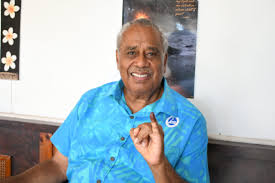Unity Fiji Leader Criticizes Government's Inflation Claims as Misleading
FIJI NEWS


Unity Fiji leader and former Reserve Bank of Fiji Governor Savenaca Narube has strongly criticised the Minister for Finance's recent remarks on inflation, calling them misleading and selective. The criticism follows the Minister's claim that a 0.9% drop in the monthly inflation rate for April validates the effectiveness of the government’s economic policies.
Narube argued that ordinary Fijians are not seeing any real relief in prices, pointing out that what consumers can buy for $100 continues to shrink. He said that despite the reported dip in inflation, prices remain high, especially for essential items.
According to Narube, the inflation data cited by the Minister does not reflect the actual situation on the ground, as inflation is an average of the price changes across all goods and services. This method of measurement, he explained, can obscure the fact that many basic necessities—particularly food—are still more expensive than they were a year ago.
He also criticised the government for focusing on a short-term monthly change instead of the more meaningful year-on-year trend, which currently shows prices are still 3.4% higher than they were at the same time last year. In his view, using one month's data to credit government policy is not only premature but also misleading.
Narube said that even a second-year economics student would know that policy impacts should be assessed based on medium-term trends rather than short-term fluctuations. He questioned what the Minister would say if inflation rises again next month, or if the annual inflation rate continues to increase — would that mean the policies are failing?
Narube further noted that the Minister failed to mention global factors such as the ongoing trade war, which is likely to increase prices further in import-dependent countries like Fiji. He concluded that the government was selectively using economic data to present an overly optimistic view, potentially misleading the public.